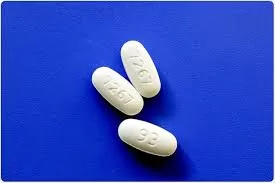Date: August 4, 2024
In an influential perspective published today in the New England Journal of Medicine, Georgetown School of Health professor Sam Halabi, JD, and George O’Hara, a Georgetown medical student and David E. Rogers Student Fellow, propose critical reforms to enhance the global regulatory framework. These reforms aim to improve equitable access to diagnostics, therapeutics, and vaccines during public health emergencies, particularly benefiting low- and middle-income countries (LMICs).
The COVID-19 pandemic highlighted significant bottlenecks and delays in the distribution of essential medical supplies, largely due to the concentration of regulatory capacity in high-income countries. The U.S. Food and Drug Administration (FDA) and a few other national regulatory authorities currently dominate the approval process for medical products. A recent analysis reveals that only a small fraction of national regulatory bodies, mostly in high-income countries, meet the World Health Organization’s (WHO) criteria for being “highly performing.” Consequently, approximately three-quarters of WHO member states lack the regulatory maturity to assure their populations of the quality of medical products, including vaccines.
To address these disparities, Halabi, who directs the Center for Transformational Health Law at the O’Neill Institute for National and Global Health Law, and O’Hara suggest three high-impact steps for global health leaders:
- Expand Regulatory Coordination and Planning: The WHO should enhance coordination with national regulatory authorities that have reached advanced maturity levels. This involves integrating regulators from countries like Korea, Saudi Arabia, and Singapore into a regional initiative for dossier review and approval during emergencies.
- Leverage Regional and Multilateral Development Banks: Development banks should extend loans for procuring medical products approved by WHO-listed authorities with specific certification. This measure aims to alleviate the bottlenecks and access issues that were exacerbated by reliance on WHO’s Emergency Use Listing designation during the COVID-19 pandemic.
- Promote Regulatory Flexibility in Pandemic Agreements: Global pandemic agreements should incorporate provisions for a coordinated and multilateral approach to leveraging emerging regulatory capacity. By decentralizing regulatory review and expanding the approval process to include authorities from countries with robust regulatory systems, LMICs can secure vaccine doses more swiftly in future pandemics.
“Together, these steps can drive more cohesive responses to future public health emergencies,” write Halabi and O’Hara.
The WHO has already begun reducing reliance on the European Medicines Agency and the FDA by establishing a new framework of WHO-listed authorities to replace the stringent regulatory authority designation. However, the authors emphasize the need for further efforts to ensure greater national control over vaccine supply and reduce dependence on global entities like COVAX.
“Expansion of regulatory pathways would prioritize public health by enabling diagnostics, therapeutics, and vaccines to reach populations sooner,” they write. “By taking incremental but high-impact steps based on the WHO’s classifications of regulatory systems, global health leaders can mount a more equitable and rapid response.”
For more information, refer to the article “Preparing for the Next Pandemic — Expanding and Coordinating Global Regulatory Capacity” in the New England Journal of Medicine (2024).












